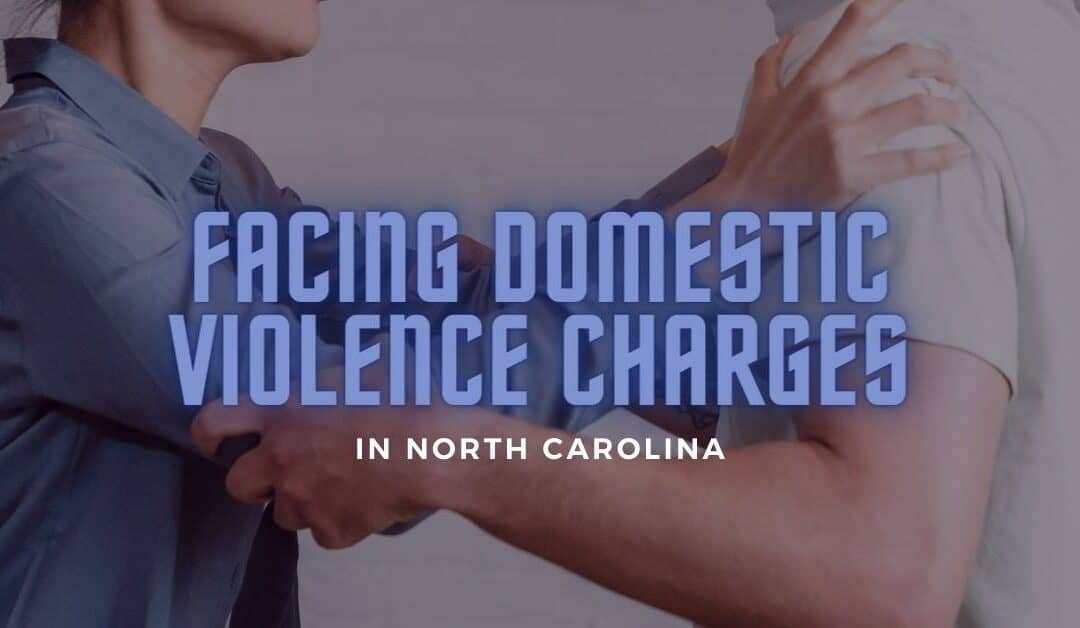If you’re facing domestic violence charges in North Carolina, it’s essential to understand how to defend yourself. Domestic violence cases can be challenging in and out of court, but with the right legal representation, you may be able to get charges dropped. Let’s look at NC Domestic Violence state laws and how they affect you as someone accused of domestic violence.
Who Can File Domestic Violence Charges?
There are particular types of relationships that NC recognizes in domestic violence charges.
The individual filing against you must be a:
- Current or former spouse
- A partner who lived with you or lives with you now
- Your parent or someone acting as a parent to you (including grandparents)
- Your child over the age of 16
- A parent of the same child
- Current or former household members
- Individual you dated or are dating now
It may be possible to prove that the person filing against you does not fall into one of these categories. If you can provide evidence that you have never lived together or show that the accuser is not related to you, you may disprove the accuser’s claims. In that case, the court could drop the charges.
How is Domestic Violence Defined in North Carolina?
NC domestic violence laws describe domestic violence as when you:
- Attempt to cause bodily injury to you or anyone in your household
- Actually cause bodily injury to you or anyone in your household
- Attempt to cause you or anyone in your household to feel emotionally distressed and in fear of serious injury or harassment
- Commit a sex offense such as rape or others listed in G.S. 14-27.21 through G.S. 14-27.33
Notice that attempting to commit an act is also domestic violence. So, for example, if you tell your partner that you’re going to mess her up and then angrily clean an empty gun while giving your partner the evil eye, this is domestic violence.
It is also domestic violence to threaten someone with harassment in a way that causes them to feel emotionally distressed or even harassed. You may not feel emotionally distressed if someone slams a fit on a table and says, “This will be your face next time.” However, others who are not used to this kind of behavior may feel extreme emotional distress in that situation.
North Carolina Domestic Violence Protective Order
If your accuser receives a Domestic Violence Protective Order (DVPO) in a hearing, the court may grant them:
- Personal property, including a car
- Temporary custody of any children or pets
- The right to remain in the home with any children (no matter who owns or rents the house)
The court may also limit your behavior, including ordering you to:
- Have no contact with you or any children: often including an order to stay a fixed distance from you or any children.
- Make no threats through ANY means.
- Refrain from any abuse, harassment, or interference in your life through ANY means.
- Surrender firearms (and not purchase more).
- Move out and not return (it doesn’t matter who owns or rents your home)
You can see that charges for domestic violence require help if you want a chance at getting your life back. Working with an attorney who understands domestic violence laws can help you through the court hearings you will face when defending against any type of protective or restraining order.
Defending Your Actions in Court
You can’t defend yourself by apologizing, but agreeing to whatever the court deems necessary can go a long way to managing your situation with your accuser, whether it’s anger management courses, a stay at a psychiatric facility for assessment, or family counseling.
If you’re guilty of domestic violence, recognizing you have a problem and finding help can mean something to your loved ones and the judge. If you’re not guilty but falsely accused, your attorney may help you gather evidence that your accuser is lying.
Working with an attorney specializing in domestic violence charges can also help you find the evidence you need and get through the hearings you must face when accused of domestic violence. Without someone on your side walking you through your next steps, your defense is dead in the water.
Finding Help to Defend Yourself
If you’re facing domestic violence charges, it’s essential to understand your rights and how to defend yourself. With the right legal representation, you may be able to get charges reduced or even dropped. You may also find it possible to work with a judge to attend some type of treatment program for rehabilitation.
We work diligently to help you find your way out from under the charges you face using our extensive experience to determine your best defense strategies. If you have any questions or concerns about your next steps, please don’t hesitate to contact us at Cape Fear Law and find out how we can help!

